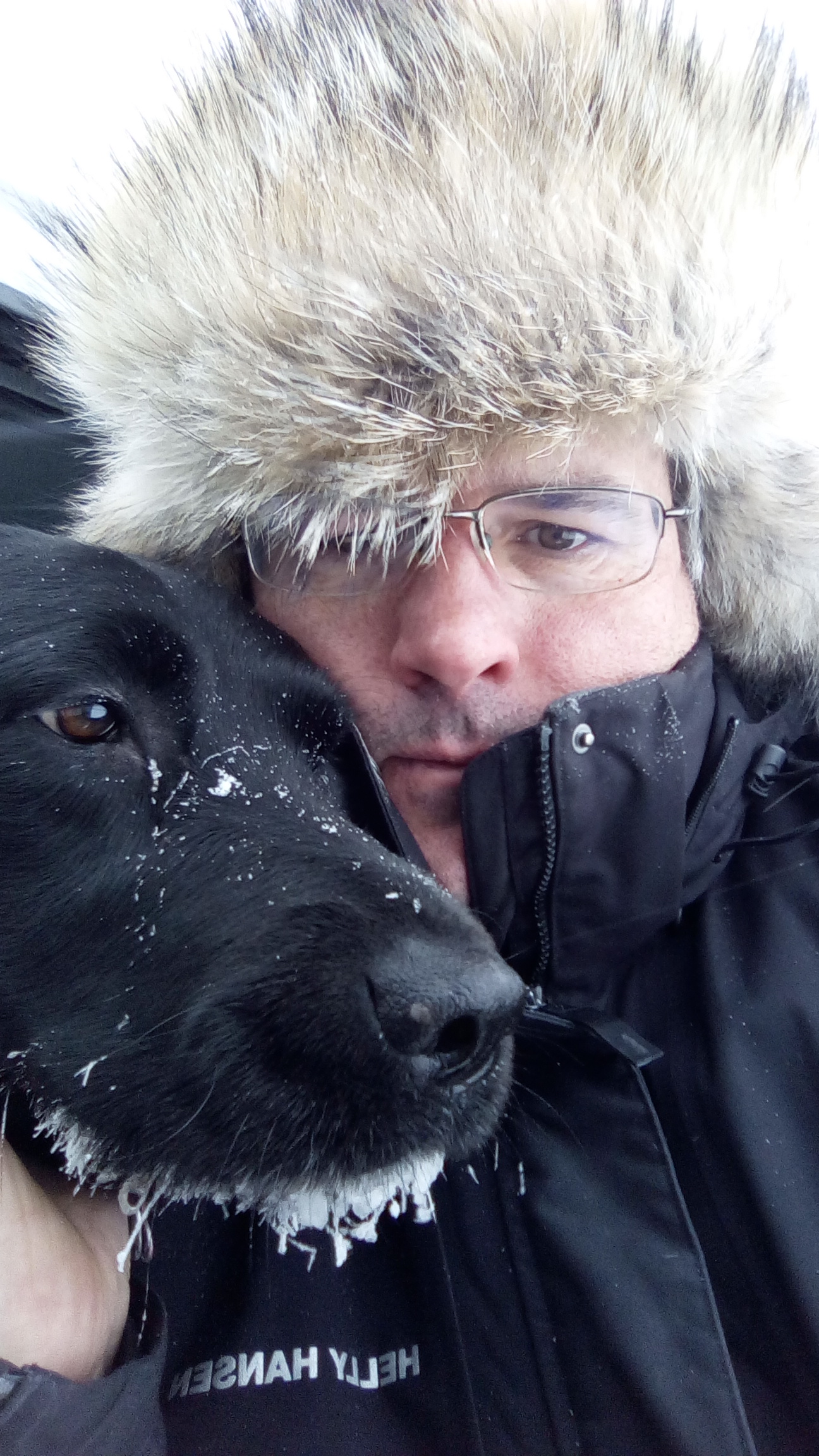
Robert Losey and his dog, Guiness
In January 2016, the Faculty of Arts announced the groundbreaking research of psychologist Nancy Galambos and sociologist Harvey Krahn, which countered established beliefs about the trajectory of happiness within a person's lifespan. This became part of a larger faculty campaign known as Happiness Month, which we revisit this January with a focus on the role of dogs and mental well-being. And who better to speak to this subject than Anthropologist Robert Losey, who researches the archaeology of human-animal relationships.
And don't forget to join us Monday, January 15 for BARKS IN ARTS, where we welcome CAAWLS wellness dogs, 11:00 a.m. to 1:00 p.m. in the Humanities Fishbowl!
Dogs are remarkably good at being with us. Our relationship with these animals began somewhere in Europe or Asia over 15,000 years ago. This process appears to have been initiated by wolves themselves, probably when a few of them began living full-time at the periphery of human settlements, scavenging on our leftovers. These wolves eventually became so fully entangled in the lives of humans, that they became isolated and distinct from other wolves, a process referred to as domestication.
It is fairly common to think of domestication as a cold evolutionary process involving selective breeding to produce an animal of a certain form-people producing a bio-product to achieve certain ends. Scholars from across the social sciences have begun to pick apart this one-sided account, pointing out that emotion and social abilities have always been critical in our relationships with dogs, and living with dogs and other animals has shaped human evolution-they have in a sense domesticated us.
Dogs are amazingly good at being social with other species, which is most obvious in the strong bonds they now form with us, but such social connections can and do occur with other animals such as sheep and even cats. These abilities were almost certainly present in some form in even the earliest dogs, and key to their integration into society. This is suggested by the fact that early dogs were often carefully buried, sometimes directly beside their human counterparts, or in their own carefully made graves.
The earliest such burial is in Germany, where a young and quite sick dog was buried alongside two adult humans just over 14,000 years ago. In other areas of the world, including parts of Siberia, dogs were clearly given their own funerals at death, even being placed in graves with food offerings and wearing necklaces. These were the same burial practices given to humans at that time, indicating that the dogs were quite literally part of the human family-and this was just over 7000 years ago.
Living with dogs has surely contributed to the long-term success of humans as a species. For thousands of years they have pulled our sleds, helped us put food on the table, and guarded our homes and other domestic animals. Dogs also enrich our daily lives, getting us off the couch and out of the house, while always offering their companionship and affection. These profoundly important contributions to our history and physical and mental well being should not be overlooked.
Today there are at least half a billion dogs on earth, many of which live like their early relatives-as scavengers on our streets and in our dumps. Domestication is a relationship, and like all relationships this one comes with responsibilities. At the very least, this entails ensuring that animals that have contributed so much to us live fulfilling and healthy lives.
Further reading:
Reading an ancient bond in the look of puppy love (Robert Losey/Folio)
Previous articles about Happiness Month:
Finding help close to home: Psychologist Suman Varghese counsels students in crisis (2017)